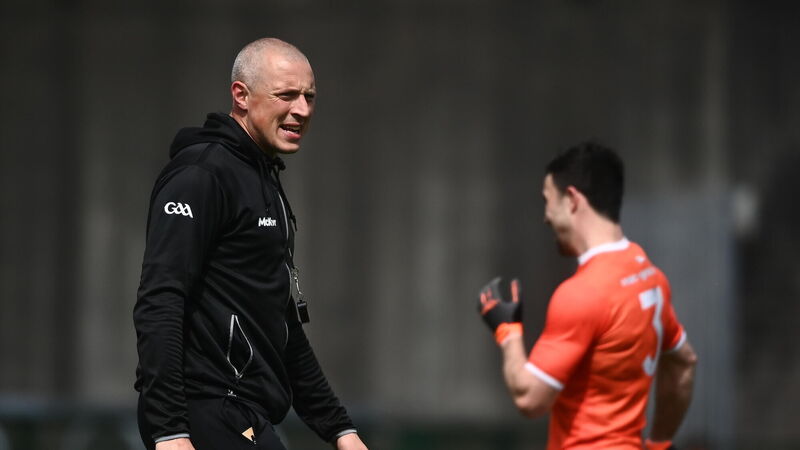Dr Ed Coughlan: GAA would benefit from allowing more players cross their county bounds

Former Kerry star Kieran Donaghy joined the backroom team of Kieran McGeeney’s Armagh, with nothing but people’s support. Should players have the same opportunity, wonders Dr Ed Coughlin? Picture: David Fitzgerald/Sportsfile
The job of any National Governing Body is to grow their game by creating an environment full of opportunities and minimising barriers for engagement across the lifespan. What this looks like is that when a child starts in a sport, the NGB has structures in place to attend to that person’s needs as they go from childhood to adolescence, and on through to adulthood.
That at no point in time is there a block to them experiencing the sport in a manner that suits their personal situation or endeavour. In other words, if they want to play, they can play, if they want to coach, they can coach, if they want to be involved in administration, they can do that too. And the level at which they want to engage in the sport is limited only by their motivation and ability.








